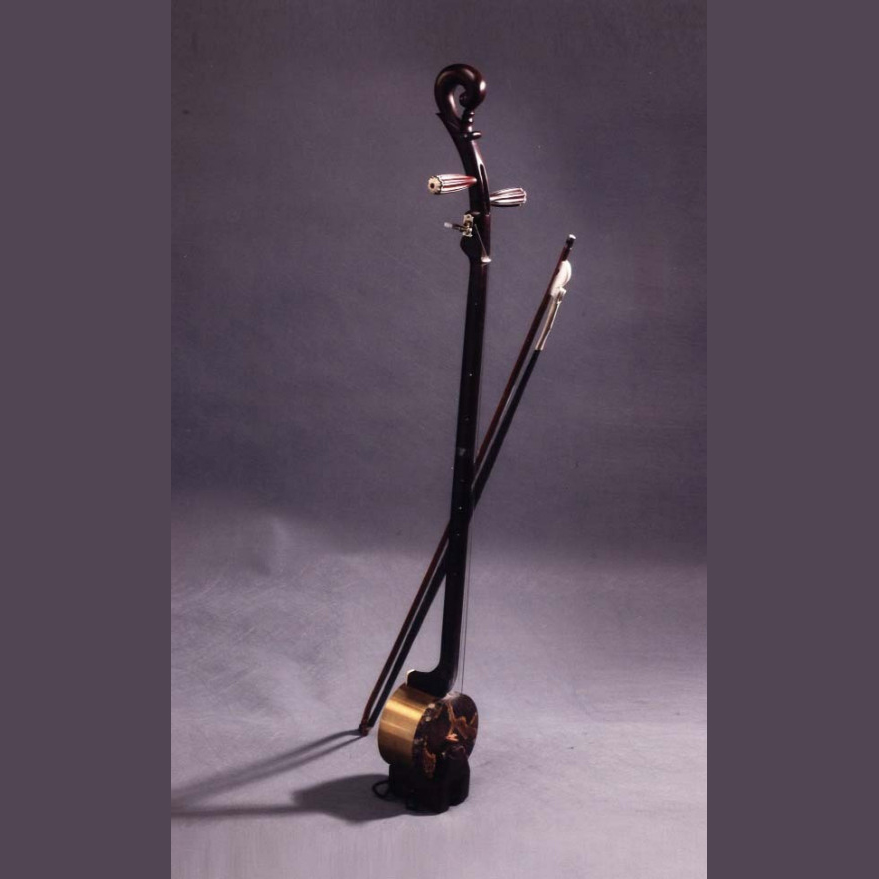The development history of Leiqin
Leiqin was reformed on the basis of Zuihu, a famous Chinese folk artist Wang Dianyu (1899-1964). It has a larger volume, wider range and beautiful timbre than Zuihu. Wang Dianyu is from Yuncheng County, Shandong Province. He once studied with the apprentice to play folk instruments such as Zuihu. Due to his talent and hard work, he can use Zuihu to play some folk songs and local operas. At the end of the 1920s, Wang Dianyu made a bold reform on Zuihu. He lengthened the qin rod, enlarged the qin barrel, and covered the qin barrel with python skin of appropriate thickness. The new musical instrument with louder volume, wider range and more beautiful timbre came out in his hands in 1953, and this musical instrument was officially named "Leiqin".

The leiqin has a wide range of sound, a large volume, a soft and round tone, and a rich expressive force. It can be played solo, ensemble or ensemble, and can simulate human voice, opera singing, birds and beasts and the sound effects of various musical instruments.
After years of artistic practice, Leiqin has accumulated a number of repertoires, and the opera genres and styles of opera played, such as Peking Opera "Mei School", "Cheng School", "Tan School", "Ma School", "Yu School" and Pingju, The famous actors' arias from Hebei Bangzi and Henan Bangzi are vivid and vivid, and are popular and loved by the masses. In addition, the leiqin can simulate sheng pipe ensembles, military drum horns and folk minors. Famous songs include "Little Widow Going to the Grave" and "The Waves of Honghu Lake" and so on.
 渝公网安备 50010702504639号
渝公网安备 50010702504639号